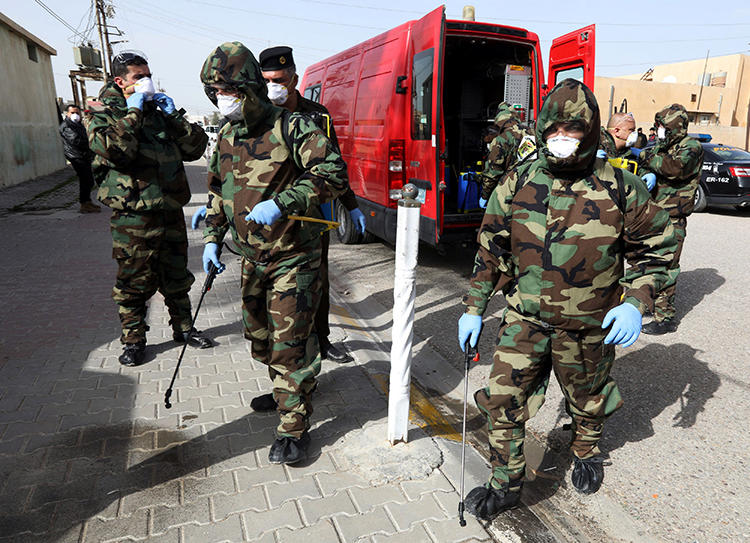On March 24, 2020, Iraqi National Security Forces officers stopped Azad Shakur, a reporter for the Iraqi Kurdish broadcaster Gali Kurdistan, and seized his belongings for allegedly violating a lockdown imposed to restrict the spread of the COVID-19 virus, according to Shakur, who spoke to CPJ in a phone interview, and a report by the Press Freedom Advocacy Association in Iraq, a local press freedom group.
The officers stopped Shakur at a checkpoint in the northeastern Iraqi city of Kirkuk while he was on his way home from the office, he said. Shakur identified himself as a journalist, but security officers confiscated his driver’s license, car registration, and press cards, and said they would fine him for violating the curfew, he said.
On March 15, Iraq imposed a curfew initially in Baghdad, but then expanded to cover the entire country, in response to the coronavirus outbreak, according to news reports. Journalists, diplomats, health workers, and other selected groups are exempt from the restrictions, according to those reports.
Shakur told CPJ that he showed the officers a permit from the Kirkuk Police saying that he was entitled to work during curfew hours.
“They said they didn’t recognize that permit and that they will fine me, because I didn’t have a permit from the Kirkuk Operations Command,” he said.
Shortly after arriving home, Shakur, whose employer is affiliated with the opposition Patriotic Union of Kurdistan party, called a local general to complain about the incident; shortly afterward his license, registration, and press card were sent to his home and the fine was dropped, he told CPJ.
“Since Kirkuk was seized by the Iraqi Army in October 2017, it has become very difficult to work here as a Kurdish journalist. We are constantly harassed and, unlike Arabic outlets, we are not invited to cover government events,” Shakur told CPJ.
